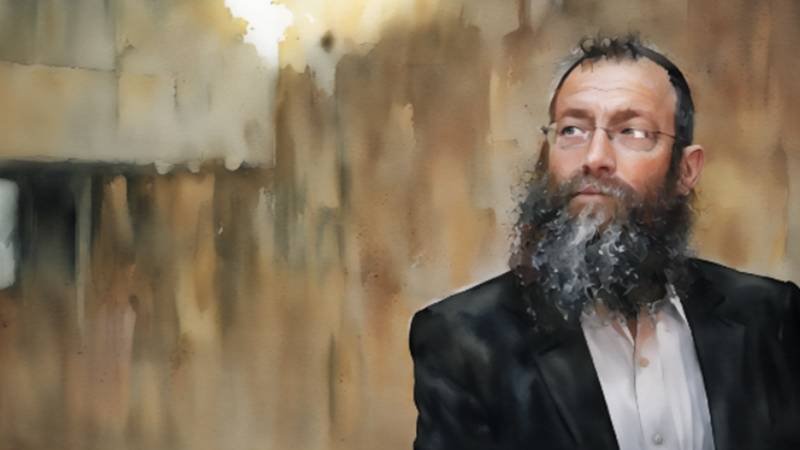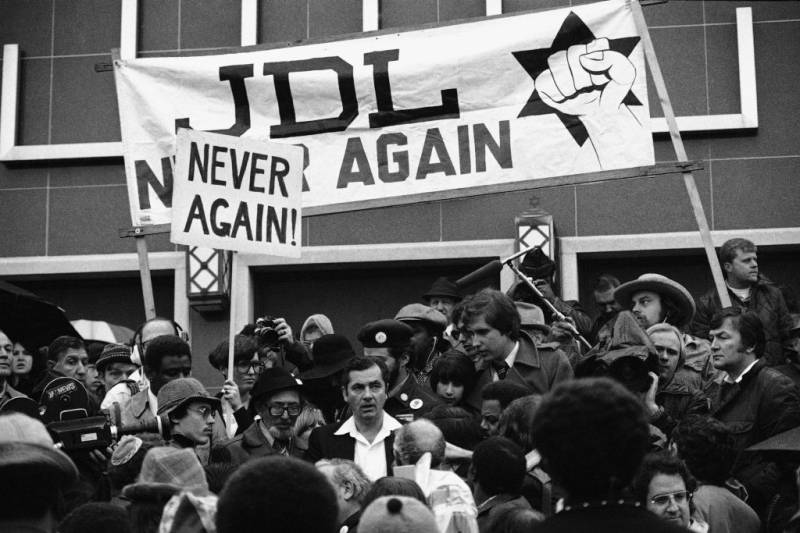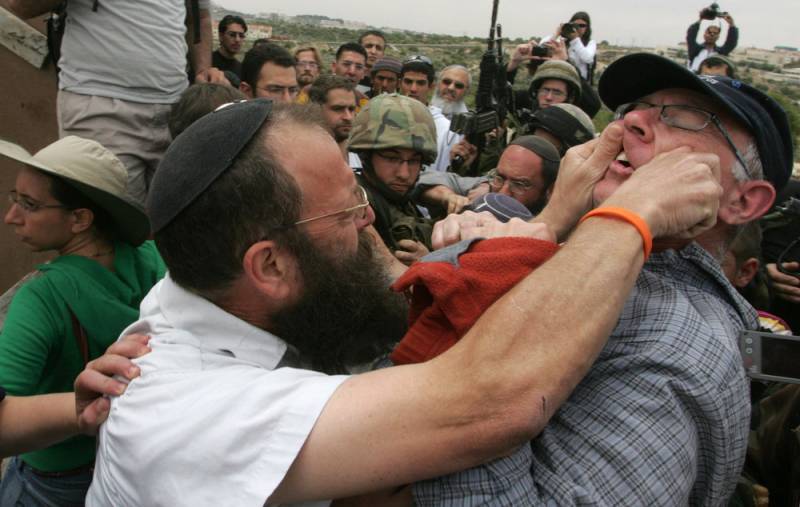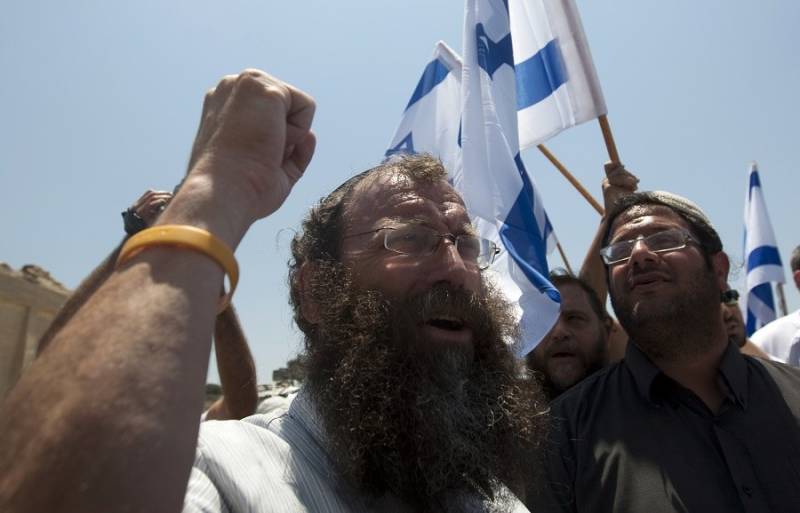
As summer's end draws closer, now would be a good time to ask: have you watched Errol Morris’ Academy Award-winning documentary The Fog of War (2003), in which he interviews Robert McNamara, the controversial US secretary of defence during the John F Kennedy and Lyndon B Johnson administrations at the height of the Vietnam war? Or The Unknown Known (2013), by the same director in which he investigates the thought process of the former United States Secretary of Defense, Donald Rumsfeld, from his early career as a congressman in the 1960s to planning the invasion of Iraq during the George W Bush Jr’s presidency in 2003? Or The Pigeon Tunnel (2023), which navigates the Cold War era through the minds of a man from the field, who was also one of the best storytellers, David Cornwell, the former British spy known to the literary world as John le Carré?
Noam Osband’s The Radical Jew is a similar flick. Augmented by archival footage and braced by extensive research, the film interviews Baruch Marzel, one of Israel’s most notorious extremists alive today.
Baruch Marzel was of a similar worldview to the more famous Baruch Goldstein, another extremist figure mentioned in the film, who sprayed Palestinian worshippers with bullets while they were prostrating in the Fajr prayer in the month of Ramadan in 1994. His views would be familiar to Itamar Ben-Gvir, the current national security minister who hung a photo of Goldstein in his home, considering him a ‘hero’ and wishing to “live in an annexed Gaza” after the current war is over.
Through an in-depth interview-style film, in which the voice of the interviewer is mostly missing, Marzel speaks out his mind and bares his soul
Much of this mindset goes back the American-born Rabbi called Meir Kahane. Arguably, Kahane was the most notorious ideologue in modern Jewish thought, whose American legal education coupled with yeshiva (Jewish seminary) training made him a dangerous cocktail of extremism. Apart from writing many books, he influenced young Jewish minds through his widely read columns that appeared regularly in the Brooklyn-based weekly newspaper, The Jewish Press, for around three decades.

Kahane was a lawyer, a Rabbi and, most importantly, as charismatic as he was violent and racist. In the 1960s, he founded a Black Panther-style organization called the Jewish Defence League (JDL) in New York. After migrating to Israel in the 1970s, he founded a political party called Kach. The party was based on Kahane’s racist and extremist ideology, popularly known as Kahanism. In 1984, Kahane won a seat in the Knesset (Israel’s parliament) and proposed a set of laws which were, astonishingly, similar in many ways to the Nuremberg Laws that were made against the Jews in Nazi Germany in 1935. Kahane was against democracy and secularism in Israel. Instead, he wanted the imposition of the Jewish law (Halakha). Additionally, he wanted the expulsion of Arabs from Israel: “I want them out, I want them out alive, and if not alive dead.” Kahane is shown in the film saying this. He considered them a cancer – “you don’t coexist with cancer, you either cut it out or you die.” Moreover, he was against giving equal rights to non-Jews. “Kahane was right” is a famous slogan among his cult followers, who exist both in Israel and in the United States.
In 1990, Kahane was shot dead by a Muslim radical – an Egyptian American student in the city where he was born, New York. Following his death, his son Binyamin Kahane founded Kahane Chai (meaning Kahane lives). Both parties, however, were banned by Israel and declared as terrorist organisations by the US following the Ibrahimi Mosque massacre carried out by military doctor Baruch Goldstein, himself a Kahanist, whose act was appreciated by Kach members. Marzel, the main character of the film The Radical Jew, calls Goldstein “one of the purest people in the world, a saint, a tzaddik.” In fact, Marzel served as a secretary of Kach and was the right-hand man of Kahane.
While Kahane is dead and his party disbanded, his ideology still lives, his yeshiva still operates, and the chief of his yeshiva, Rabbi Yehuda Kreuzer, gives regular lectures to IDF soldiers. “Rabbi Kahane's tradition didn't die with him getting killed,” says Marzel in the film.

Apart from threatening Palestinians, Kahanist elements have not spared Israel’s secularists either. For example, Yigal Amir, a diehard Kahanist, killed the then prime minister of Israel two years after he signed the Oslo Accords in 1993 – a landmark peace agreement between Israel and Palestine.
Through an in-depth interview-style film, in which the voice of the interviewer is mostly missing, Marzel speaks out his mind and bares his soul. For example, he says “Jail is a very good vacation. Maybe for me, it's the only vacation. You sleep good […] it's the best hotel in the world. You learn Torah, you play some basketball, and time passes.” And he says, “Thank God, out of my nine kids, seven had problems with the police. I educate them to be fighters, and I’m proud of them that they fight.”
In the present context, watching Osband’s film is important, because it provides deep insight into the thought processes and ideology of the Israeli far-right who have, with the help of Benjamin Netanyahu, gone from the fringes to the forefront with the current government that came to power in December 2022.

While watching the film, we should keep in mind that Osband has pictured an extremist who is, by accident, a Jew by religion and an Israeli by national identity. In fact, the reality is that all extremists, irrespective of their religious or political identities, think almost the same: someone is either totally right or totally wrong, and God is, always, on their side, and that is why they are, always, right.
In Israel, Kahanist extremists have killed a PM who wanted peace with his Arab neighbours, in Pakistan, we have our extremists killed not only a former PM but also many citizens, some during the prayers inside mosques. If you need a local example, watch Hemal Trivedi and Muhammad Ali Naqvi’s 2015 documentary film, Among the Believers, which looks into the heart of religious extremism in Pakistan.

